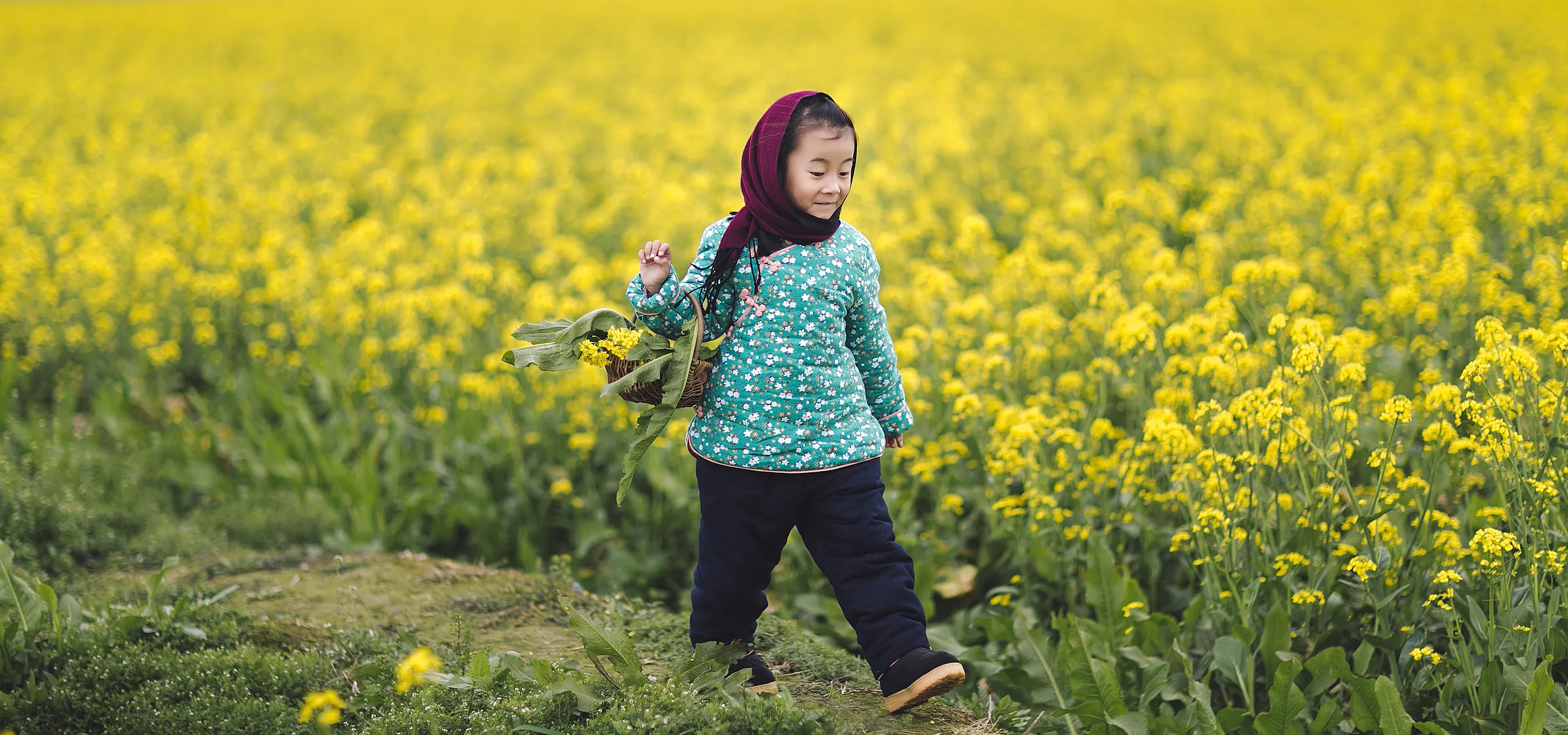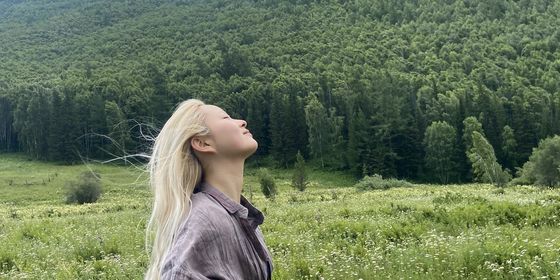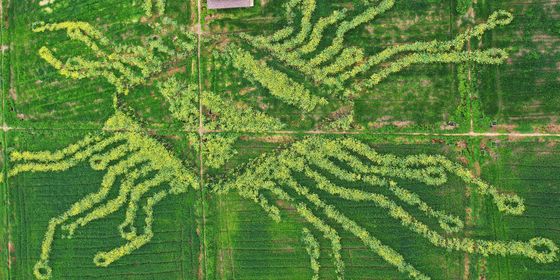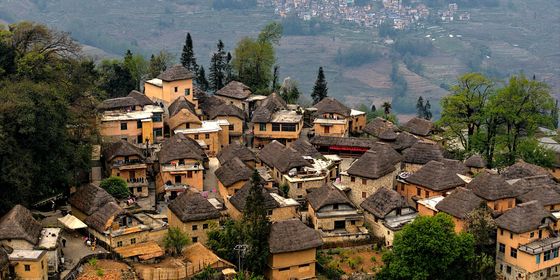From nail-polish flowers to mud crackers, improvisation was key in the countryside where Chinese children’s games and fun often came in the form of random scrap or things provided by nature.
Growing up in Pengjiacao village in Ningbo, the Fu sisters—now 58 and 63 years old—still have a vivid recollection of the games they used to play as children. Improvisation was key back in the day and childhood fun often came in the form of random scrap found lying around in the village or plants taken straight from the fields.
“Nowadays parents take kids to attractions inside malls, like those 4D animation rides. But in the countryside, we had so much fun for real, for free,” says Fu Jufen, the older sister.
A popular form of free fun revolved around garden balsam, better known as the “nail-polish flower.” Made into a paste and mixed with minerals, this concoction can be applied to your fingernails, which are then wrapped in bean leaves and tied with yarn before you go to sleep, resembling zongzi glutinous rice wraps. The next morning, your nails glow orange.
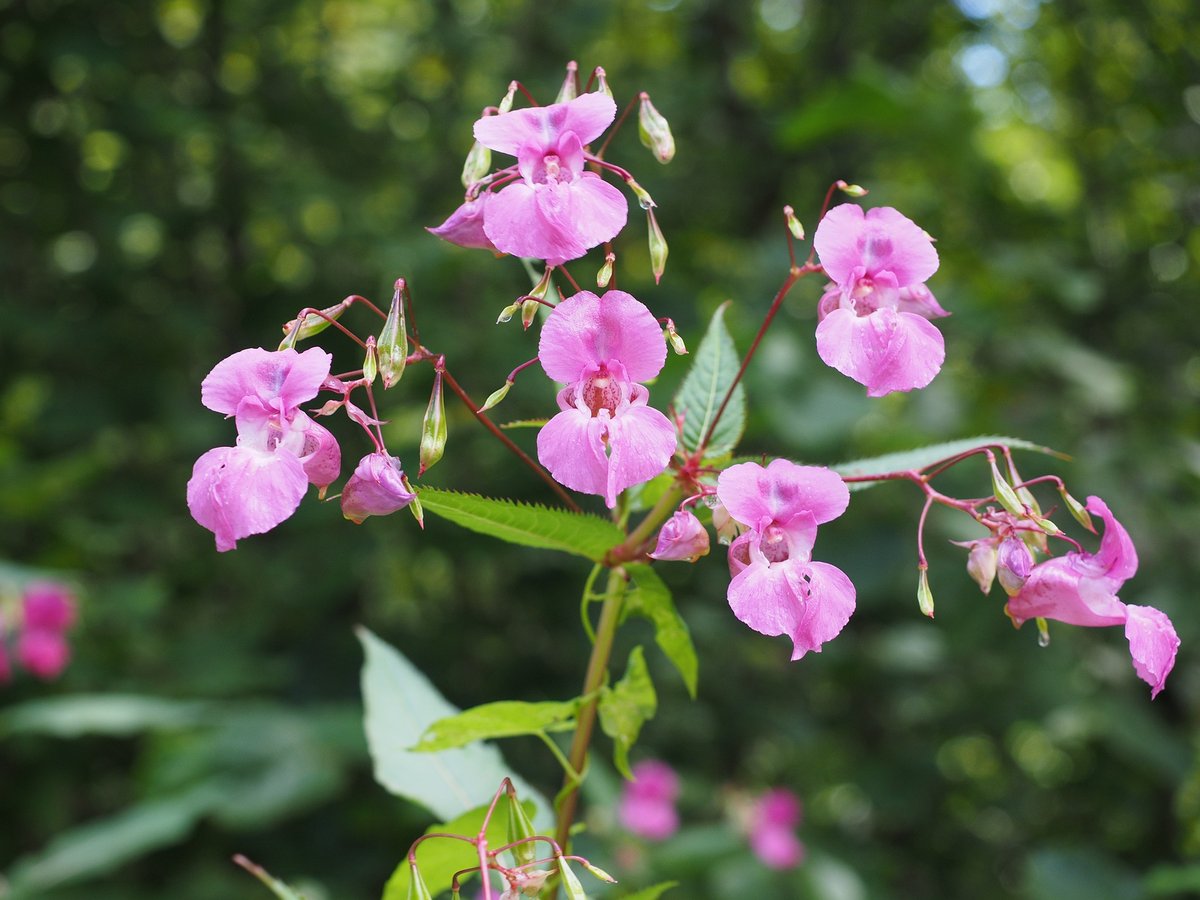
Garden balsam, better known as the “nail-polish flower” (Pixabay)
“Sometimes we even wrapped our toes. But we kick our legs during sleep and the wraps come loose sometimes, so we would wake up with orange feet,” says Jufen with a laugh.
As the weather got warmer, the Fu sisters and their friends would find another toy provided by mother nature—mud. “We would wait for farmers to plow the land and go collect mud that was at least 50 centimeters underground,” says Jufen. “Such mud is very smooth, sticky, and elastic.”
They would shape the mud into bowls and smash them on the ground with force. Due to the air trapped inside, the mud bowls ”explode” with a loud bang like firecrackers—whoever makes the loudest mud cracker wins the game.
“Some wild boys would go topless during the game. When their mud crackers exploded, the mud splashed all over their forehead and hair. They didn’t mind at all. They laughed and rubbed more mud on their bellies,” says Jufen.
Before heading home, they would jump in the river, not just to get clean, but to play a daring game revolving around spiral shells, known as luosi in the local dialect. The luosi have to be fumbled out from between the rocks in the water without looking. “Once I touched something soft and screamed. Later I found out it was just a soft-shelled crab, not the snake I thought it was,” recalls Jufen.
The local mud is not only used in children’s games. In early autumn, farmers start making fertilizer from river mud, also known as weijiaoni (煨焦泥) in the local dialect. They dig the mud from the bottom of the river, mix it with water plants, make mud cakes, and dry them in the sun. Then the mud cakes are piled up like a tower and the farmers set a fire at the base to slowly roast the mud tower for a week.
“So the mud will have more jindao (劲道, energy),” explains Jufen.
For children in the village, mud tower time is barbecue time. They would bring whatever food they had, from peas to sweet potatoes and rice cakes, and carefully place everything at the bottom of the mud tower.
Everything is cooked slowly in the low heat and the wait is like a game of musical chairs, with children walking around the mud tower, waiting for the crackling sound that signals the snacks are ready. “When a string of peas blasted, more than 10 kids would rush in to fight one another. They would be so busy fighting that nobody paid attention to where the peas rolled,” Jufen recalls. “I am sure today’s kids wouldn’t bother.
Come winter some children liked to catch birds, the Fu sisters say, a game even mentioned by famous writer Lu Xun (鲁迅) in his novel Hometown (《故乡》) from 1921. “Boys liked to catch sparrows in the snow. They spread grains to attract the hungry sparrows and set up a bamboo cover. When the sparrows came, they pulled the trigger and the cover fell,” explains Jufen.
“Today’s kids are not that wild anymore,” she says. “They sit in front of the computer to take online classes and play games on their phones.”
But it seems that these changes are due to more than just the digital enticements of modern Chinese life. The very nature that was the foundation for fun and games in the olden days is disappearing: At the back of her house, the younger sister Fu Juqin explains, there used to be a patch of land where wild vegetables appeared loyally every year. But a few years ago, the land was claimed to build a sports park. As the earth is now sealed with concrete, wild vegetables will never return.
It is hardly surprising that in such an environment, Juqin’s 7-year-old grandson Kai Kai knows his way around plenty of apps, but has no idea about local vegetables. Juqin hasn’t given up hope yet: “We will take Kai Kai to a canola flower field and play hide-and-seek there. If we get lucky, we may find some wild vegetables as well,” she says.
Perhaps not just for fun, but to reconnect with nature while it’s still possible.





